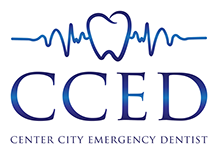Dental care is continuously evolving, and one advancement that has been gaining momentum is sleep dentistry. This modern approach is revolutionizing the dental industry by transforming patients’ experiences during dental procedures, significantly alleviating their anxiety and discomfort. However, an important question arises — is sleep dentistry the right choice for you? If you’re someone who fears the loud sounds, sharp points, or X-rays that are so common in dental care, you’ll likely enjoy sleep dentistry. But there is plenty more to consider when thinking about whether this emerging form of care is right for you.
What Is Sleep Dentistry?
Sleep dentistry, also commonly known as sedation dentistry, is a specialized facet of dental care that utilizes specific medications to aid patients in reaching a state of relaxation or even sleep during dental procedures. This innovative approach has been gaining significant recognition in the dental industry for its ability to transform the patient experience.
Sleep dentistry is a technique used to manage patient discomfort and stress during dental procedures. It involves the administration of sedative drugs, typically via an oral route, inhalation, or intravenous (IV) lines. The type and level of sedation are carefully tailored to the individual’s needs, taking into account factors such as the nature of the dental procedure, the patient’s overall health status, and their level of anxiety.
One of the biggest benefits of sleep dentistry is its ability to alleviate dental anxiety. Many individuals experience fear or unease when it comes to dental appointments, which can often lead to avoiding necessary dental treatments. Sleep dentistry eases your mind and allows you to feel just a bit more comfortable when receiving service.
The Different Sedation Levels
There are different levels of sedation used in sleep dentistry, ranging from minimal sedation, where you’re awake but relaxed, to general anesthesia, where you’re completely unconscious. The level of sedation administered is tailored to each patient’s specific needs. Here are the typical sedation levels employed in sleep dentistry:
Minimal
Minimal sedation is the lightest form of sedation, where patients remain awake but in a highly relaxed state. It is typically administered orally (in pill form) or through inhalation, often using nitrous oxide. Under this level of sedation, patients are fully capable of responding to their dentist’s commands and inquiries, yet they experience a profound sense of calm and relaxation throughout the procedure.
Moderate
Moderate sedation, also referred to as conscious sedation, is a step up from minimal sedation. Under moderate sedation, patients may experience slurred speech and might not remember much about the procedure afterward. This level of sedation is usually administered orally or intravenously (IV). It’s a practical option for patients who want to remain conscious during the procedure but prefer not to have detailed memories of it.
Deep Sedation
Deep sedation places patients on the edge of consciousness. They can still be awakened, but they are generally unaware of the procedure. This level of sedation is usually administered intravenously. It’s commonly used for more complex dental procedures like emergency dental care or for patients with high anxiety levels.
Is Sleep Dentistry Right for Me?
Sleep dentistry can be an ideal solution for various individuals. Those with severe dental anxiety, a low pain threshold, sensitive teeth, or a strong gag reflex might find sleep dentistry particularly beneficial. Additionally, it’s an excellent option for patients who need to undergo extensive dental work in one sitting, as it allows them to remain comfortable throughout the procedure.
Is Sleep Dentistry Safe for Everyone?
While sleep dentistry is generally considered safe and effective, it’s not suitable for everyone. Factors such as age, medical history, and current health status can influence whether sleep dentistry is a safe and viable option. Pregnant women, people with certain medical conditions, and those allergic to specific sedatives might not be eligible for sleep dentistry. It’s always recommended to consult with your healthcare provider or dentist before opting for this type of sedation.
Who Do I Trust for Sleep Dentistry Services?
Choosing the right provider for sleep dentistry services is a critical step. A reputable, experienced dentist specializing in sleep dentistry can do wonders for people searching for an accurate and effective service. For patients in and around Philadelphia, that means looking to Center City Emergency Dentist (CCED). With sleep dentistry services for our patients, we offer this convenient and highly effective method of operation for all our valued customers.
Don’t let fear, discomfort, or past negative experiences keep you from maintaining good oral health. Contact CCED today!

